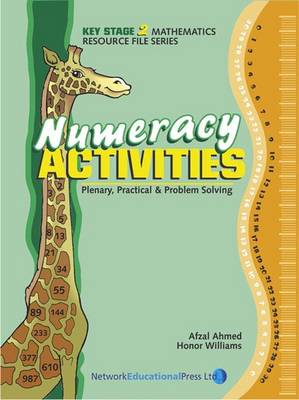Numeracy Collection S.
1 total work
Numeracy Activities for Key Stage 2
by Afzal Ahmed, Honor Williams, and George Wickham
Published 1 July 2002
This is an activity-based, photocopiable resource pack providing a flexible source of teaching material for Key Stage 2 mathematics. It aims to develop both pupils' understanding of mathematics and their computational ability through a range of interesting, enjoyable and challenging activities based on ideas extensively trialled in schools. A limited number of copies of the material were originally published by Philip Allan Publishers Ltd and it has been reviewed and revised in the light of The Numeracy Framework. The authors have considerable experience in research and curriculum development and are based at The Mathematics Centre, University College Chichester, one of the country's leading centres for mathematics education. For pupils to understand, apply and retain mathematics, they must not only read and write about mathematics, but also listen to and talk about the subject. It is through reflecting, justifying, verifying and questioning that pupils are able to consolidate their understanding.
The publication contains material that will: use pupils' own experience as a source of learning activities; increase awareness of the relevance of mathematics to their lives; encourage interaction with people and the manipulation of materials in a wide variety of situations; develop the use of spoken and written language to gain meaning from mathematical experiences; encourage pupils to describe and record relationships as well as discover and create patterns; sustain skills through meaningful practice; and increase confidence in tackling word problems.
The publication contains material that will: use pupils' own experience as a source of learning activities; increase awareness of the relevance of mathematics to their lives; encourage interaction with people and the manipulation of materials in a wide variety of situations; develop the use of spoken and written language to gain meaning from mathematical experiences; encourage pupils to describe and record relationships as well as discover and create patterns; sustain skills through meaningful practice; and increase confidence in tackling word problems.
